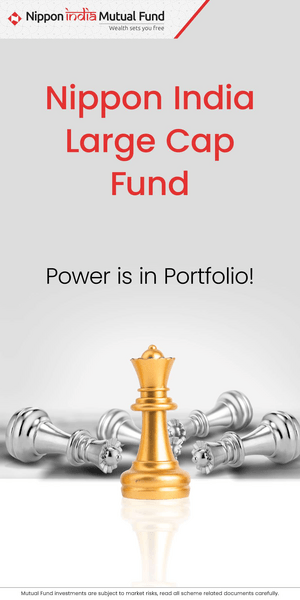Why should you have Thematic Index Funds in your portfolio?

Retails investors have traditionally favoured diversified equity funds for their investment portfolios. As per AMFI October 2024 data, are 85% of active equity assets under management (AUM) are in funds which are diversified in nature (including market cap specific funds). However, interest in thematic / sectoral funds is increasing. In the last one year, the AUM of thematic / sectoral funds grew by 107% (source: AMFI, October 2024) while active equity fund AUM grew by 59%. Certain investment themes can outperform the broad market in different market phases.
Passive thematic funds
Passive funds (ETFs and Index Funds) have seen rapid growth in AUM over the last few years. In the last 5 years index fund AUM has multiplied 35X, growing at a CAGR of 104% (source: AMFI, October 2024). Though retail investors usually associate index funds with investing in Nifty 50 or Sensex, thematic index funds can provide low cost investment options for investing in themes that can outperform the broad market.
What are thematic index funds?
Thematic index funds are passive equity schemes which invest in a theme or a trend in the economy. Themes can refer to specific macro-trends in the economy e.g. manufacturing, consumption, infrastructure, CPSE etc. Thematic index funds track some thematic index. They aim to replicate the composition of the index, by investing in the index constituents in same weights as the weights of the constituents in the index. For example, a Nifty India Consumption index fund or ETF will track the Nifty India Consumption Index.
How thematic funds can fit into your investment portfolio?
Financial advisors often recommend core and satellite strategy for building your investment portfolios. The investment objective of your core portfolio is to provide stability and long term growth to meet your financial goals. Advisors recommend diversified equity fund funds for building the core portfolio. You can supplement your core portfolio with satellite allocations to funds investing in specific sectors or themes. The satellite allocations can boost your portfolio returns and enhance wealth creation. In this article we will discuss why you should have thematic index funds as satellite allocations to your core portfolio comprising of actively managed diversified equity funds (e.g. flexicap funds, multicap funds) and / or broad market index funds (e.g. Nifty 50 index funds).
Active versus passive thematic funds
- The total expense ratios (TERs) of thematic index funds are much lower than active thematic funds. The lower cost can be a significant advantage if the active fund is not able to generate commensurate alphas.
- Unlike active thematic funds, thematic index funds do not have any unsystematic risks since they simply track the benchmark index. Active thematic funds on the other hand are subject to both systematic and unsystematic risks.
- There is no fund manager bias in thematic index funds since the fund manager of an index fund does not actively select stocks. Biases of the fund manager or a change in fund manager will not have any impact on the performance of a thematic index funds.
Broad types of investment themes
There can be broadly 4 types of investment themes:-
- Secular – A secular theme is one which has a low correlation with business cycles or not significantly impacted by investment cycles. These themes experience higher growth in times of growth, but are relatively less affected by economic downturns. For example, consumption as an investment theme in India is considered to be fairly secular.
- Cyclical – Cyclical theme or sectors are impacted by business cycles. During times of economic growth, the industry sectors within the theme outperform and during times of economic slowdown, these sectors underperform. For example, Automobiles, Capital Goods, Oil and Gas etc are considered to be cyclical sectors.
- Defensive – Defensive theme or sectors are the ones which provide stable returns across business cycles. The main difference between secular and defensive stocks is how they perform in different market phases e.g. secular stocks / sectors are likely to outperform defensive stocks / sectors in bull markets. Examples of defensive themes / sectors are Healthcare, Pharma, FMCG, etc.
- Rate Sensitive – Rate sensitive sectors are the ones which are impacted by interest rate changes. Examples of rate sensitive sectors are banks, real estate etc.
How to select thematic index funds?
- You have to decide which theme fits into your portfolio. For example, if your portfolio is tilted towards cyclical sectors, may want to invest in secular or defensive themes to provide diversification.
- Some thematic investments may require market timing, while others do not require market timing. You should make informed investment decisions based on your investment horizon and consult with your financial advisor or mutual fund distributor if you need help.
- Type of investment – lump sum or SIP. If you are investing through SIP, then market timing is irrelevant. However, if you are investing in lump sum then timing the market can result in higher or lower returns. We must add here that investors should always have sufficiently long investment horizons for equity funds.
- Investors often focus on index funds with lowest TER and ignore tracking errors. While TER is a major source of tracking errors, there can be other sources of tracking errors like cash balances, dividend reinvestments, corporate actions etc. You should try to select funds with low TER and low tracking errors.
Investors should consult with their financial advisors or mutual fund distributors about how thematic index funds can fit into their investment portfolios.
Mutual Fund Investments are subject to market risk, read all scheme related documents carefully.
RECOMMENDED READS
LATEST ARTICLES
- Two new promising smart beta funds: Nippon India Nifty 500 Low Volatility 50 and Nifty 500 Quality 50 Index Funds
- Going hybrid in the current environment
- Asset allocation is key to long term investing: Hybrid funds make a lot of sense in current market conditions
- Should you invest in momentum funds: Why momentum works in investing
- Nippon India Active Momentum Fund: Invest in winners
The information being provided under this section 'Investor Education' is for the sole purpose of creating awareness about Mutual Funds and for their understanding, in general. The views being expressed only constitute opinions and therefore cannot be considered as guidelines, recommendations or as a professional guide for the readers. Before making any investments, the readers are advised to seek independent professional advice, verify the contents in order to arrive at an informed investment decision.
Mutual Fund investments are subject to market risks, read all scheme related documents carefully.
Quick Links
Follow Nippon India MF
More About Nippon India MF
POST A QUERY





